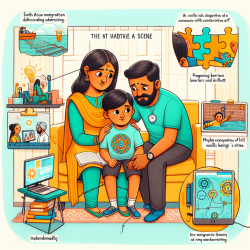Palliative care is an essential component of healthcare that focuses on improving the quality of life for patients with life-threatening illnesses. Despite its importance, there is a significant shortage of trained palliative care professionals globally, especially in low- and middle-income countries. A recent study titled "Building the Nigerian Palliative Care Workforce: An Interdisciplinary Distance Learning Training Program" sheds light on how virtual training can bridge this gap and enhance the skills of healthcare practitioners.
The Nigerian Initiative
The study highlights a collaborative effort between the University of Lagos in Nigeria and Northwestern University in the United States. Together, they developed a 12-hour virtual training program aimed at improving the knowledge, skills, attitudes, and confidence of Nigerian healthcare professionals in palliative care. This initiative is particularly noteworthy as it adapts existing curricula to fit the Nigerian context, making it culturally relevant and effective.
Key Components of the Training
- Goals of Palliative Care: Understanding the core objectives of palliative care and how it differs from hospice care.
- Whole Patient Assessment: Techniques for comprehensive patient evaluations that consider physical, psychological, social, and spiritual needs.
- Communication Skills: Protocols for delivering difficult news and discussing prognosis with patients and families.
- Pain Management: Strategies for assessing and managing pain effectively through appropriate medication.
- Palliative Care in Specific Contexts: Addressing unique challenges related to COVID-19, oncology, and HIV/AIDS.
The Impact of Training
The training program had a profound impact on participants. Confidence in providing end-of-life care soared from 27.3% to 92.9%, while confidence in prescribing medication increased from 42.9% to 92.0%. Participants reported significant improvements in their ability to communicate effectively with patients and their families, as well as a better understanding of how to provide holistic care.
The program's success underscores the potential for virtual learning environments to deliver impactful education in palliative care. It also highlights the importance of adapting educational materials to fit local cultural contexts to enhance relevance and effectiveness.
Your Path Forward
If you're a healthcare professional looking to improve your palliative care skills, consider exploring similar interdisciplinary training opportunities. Engaging in such programs can not only boost your confidence but also empower you to provide more compassionate and comprehensive care to your patients.










